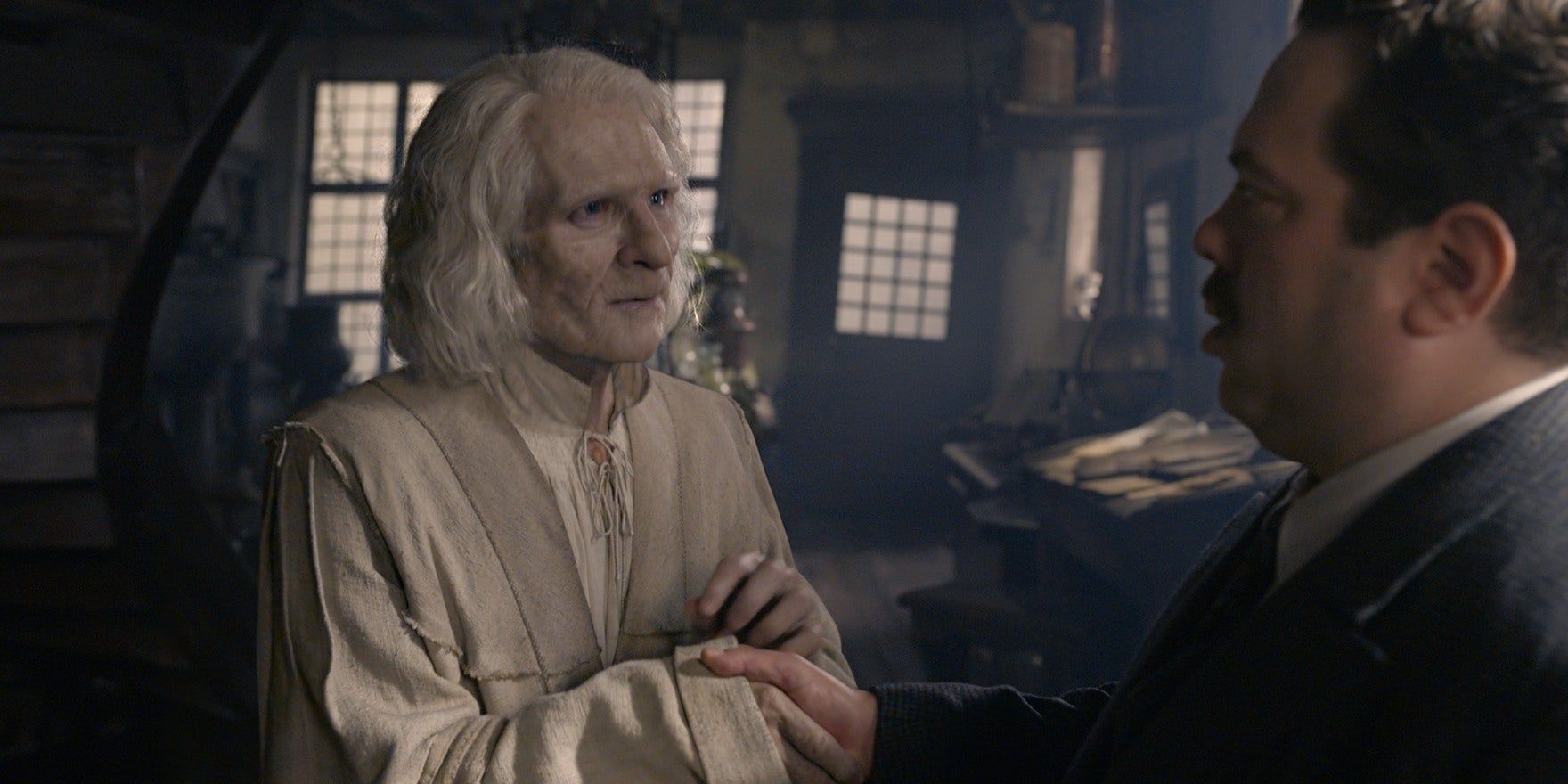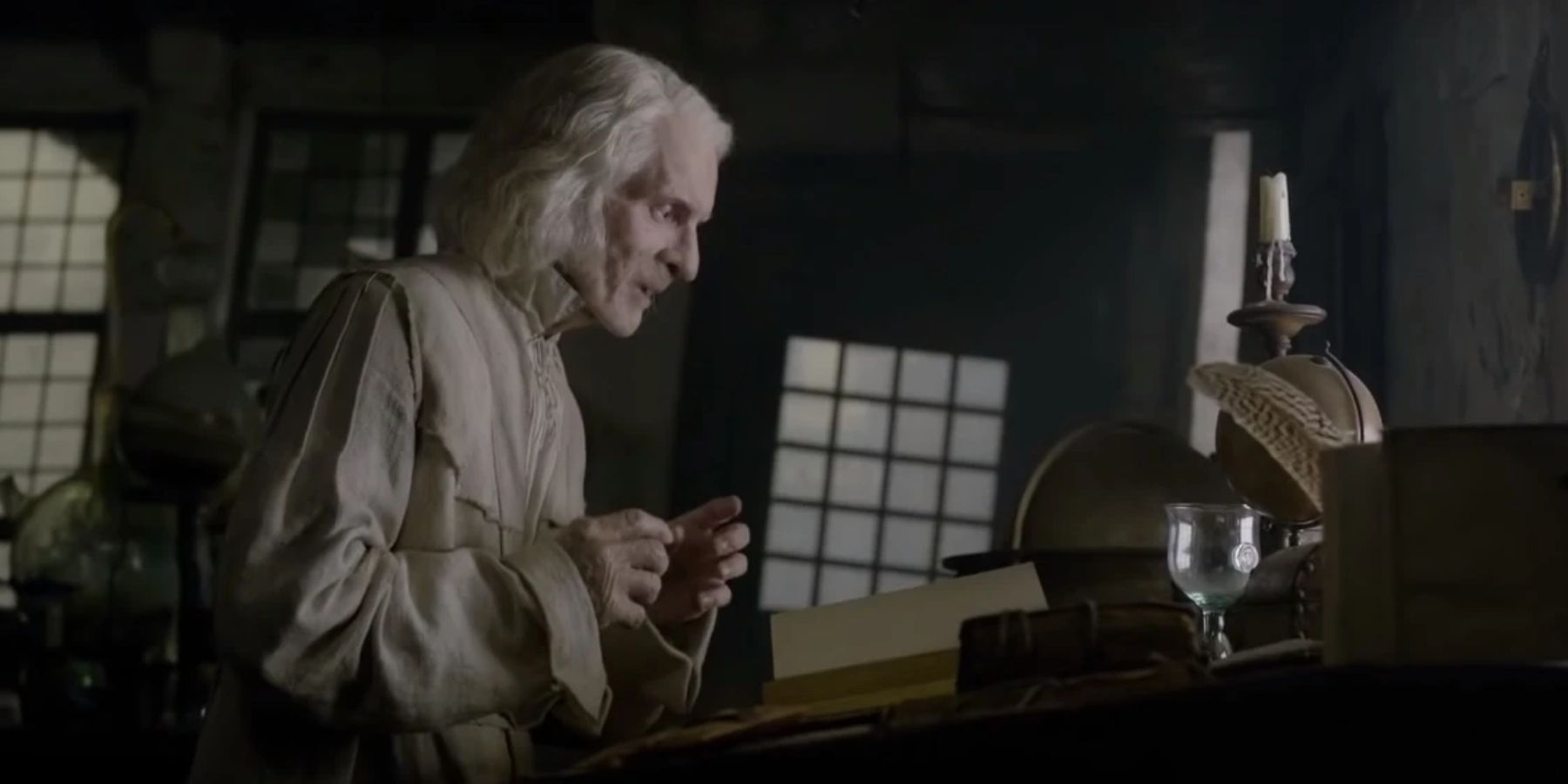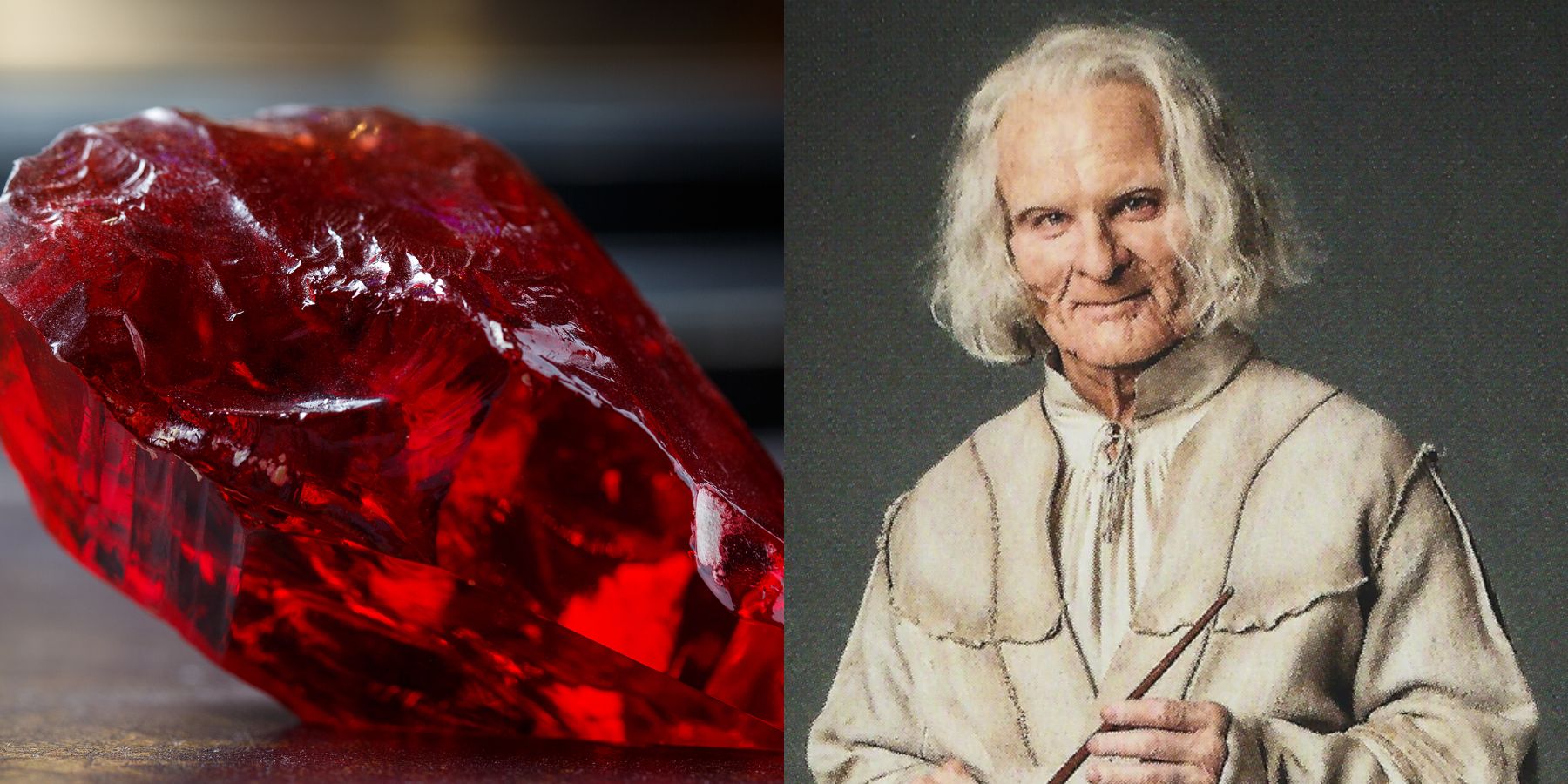Quick Links
In the enchanted tapestry of J.K. Rowling's Harry Potter universe, certain characters stand as pillars, weaving their magic through time and space. Nicolas Flamel emerges as an intriguing figure among these magical luminaries, his presence looming over the narrative like a shadow cast by the Philosopher's Stone. Delving into Flamel's enigmatic existence unveils a story that spans centuries, shaped by alchemy, mysticism, and an unwavering pursuit of immortality.
Nicolas Flamel's journey begins not in the hallowed halls of Hogwarts but in the mundane streets of Paris, a city steeped in both the magical and the muggles. Born in the early 14th century, Flamel belonged to a world where the boundary between magic and reality blurred, creating an atmosphere ripe for the emergence of extraordinary individuals. According to the Harry Potter franchise, Nicolas Flamel lived most of his long life in quiet obscurity, conducting alchemical experiments and accruing vast wealth. It was not until his connection to the highly coveted Philosopher's Stone was revealed that Flamel and his wife received unwanted public attention.
Nicolas Flamel’s Early Life
In the early 14th century, near Paris, a curious and intelligent child named Nicolas Flamel was born. His insatiable love for reading and learning about the world led him to the Beauxbatons Academy of Magic in the Pyrenees Mountains of France, where he met his future wife, Perenelle. Their love blossomed, and they soon became one of France's most affluent and influential couples.
Quick Facts about Nicolas Flamel
- He was a real person who lived from 1330-1418 and was a scribe and manuscript seller in Paris, France
- In the Harry Potter story, he is introduced as being over 600 years old due to creating the legendary Philosopher's Stone
- He was a close friend and partner with former Hogwarts Headmaster Albus Dumbledore and an ally of Newt Scamander in the fight against Gellert Grindelwald
- Flamel shared the secret of how to make the Philosopher's Stone with Albus Dumbledore, who helped protect the Stone from Voldemort
- Nicolas Flamel died in July 1996 at the age of over 665 years.
Creating The Philosopher’s Stone
Flamel harbored a deep passion for alchemy, an enigmatic art that sought to transmute matter and create the elixir of life. He delved into ancient texts and symbols, tirelessly attempting to unravel their secrets. Then, one fateful day, a rare manuscript, a copy of an ancient work called the Book of Abraham the Mage, arrived from an unknown source, containing instructions on how to create the Philosopher’s Stone – a legendary substance capable of transmuting base metals into gold and bestowing immortality. Flamel perceived this as a divine message from an angel who had appeared to him in a dream. Determined to pursue his quest for the Stone, he was joined by his wife, Perenelle, who shared his vision and ambition.
Following the directions in the book meticulously, Flamel successfully produced the first-ever Philosopher's Stone after many patient years of work. Its most prized capability was making the Elixir of Life, which could dramatically slow the aging process and extend the drinker's life indefinitely. Flamel shared the Elixir with his wife Perenelle, allowing them to live for centuries. Flamel and Dumbledore became close friends, and Dumbledore helped Flamel keep the Philosopher's Stone safe from those who would abuse and misuse its powers, like the dark wizard Voldemort.
Flamel's Philosopher's Stone was the only one in existence for centuries. It remained his most prized possession and the culmination of his lifelong work in alchemy, allowing him and his wife to live as the oldest and most accomplished wizards in history. Flamel eventually decided to destroy the stone to keep it out of the wrong hands, ending his unnaturally long life but securing his legacy as the sole creator of the fabled Philosopher's Stone. Once in a conversation with a curious Jacob Kowalski, Nicholas Flamel said:
‘ No, I'm an alchemist, so therefore I am immortal.’
What Happened To Nicolas Flamel?
In Harry Potter and the Philosopher's Stone, by the time of Harry's first year at Hogwarts, the Flamels had lived over six and a half centuries, making them the oldest known sorcerers in history. However, Flamel realized it was no longer safe with the evil Lord Voldemort seeking the stone to regain his lost powers.
He entrusted Albus Dumbledore to destroy the stone and elixir so that Flamel and his wife could finally experience a natural death, now that they had lived long and fulfilling lives filled with scholarly achievement, philanthropy, and discovery of alchemy's greatest secret. Though the exact date is unknown, it is believed Nicolas and Perenelle Flamel peacefully passed away sometime in July 1996.
Flamel's destruction of the Philosopher's Stone secured his legacy as the sole creator of the fabled object. Flamel unlocked the secrets of immortality and riches through his pioneering alchemical work, even if he did not retain them indefinitely. He lived on as one of the most accomplished wizards in history and a close friend of Dumbledore's until the very end. Flamel's story inspired future generations of magical scholars seeking to push the boundaries of what was possible through the mystical arts of alchemy.

Harry Potter
When Harry Potter learns that he is a wizard, he enters a world beyond belief. Aside from continuing his studies at Hogwarts with best friends Ron Weasley and Hermione Granger, Harry must also face Voldemort and his dark wizarding forces. The Harry Potter franchise is a worldwide phenomenon, spanning seven books, eight movies, three spinoff movies, a stage play, and numerous video games.
- Created by
- J.K. Rowling
- Cast
- Daniel Radcliffe , Emma Watson , Rupert Grint , Alan Rickman , Michael Gambon , Ralph Fiennes , Maggie Smith , Robbie Coltrane
- Where to watch
- HBO Max







